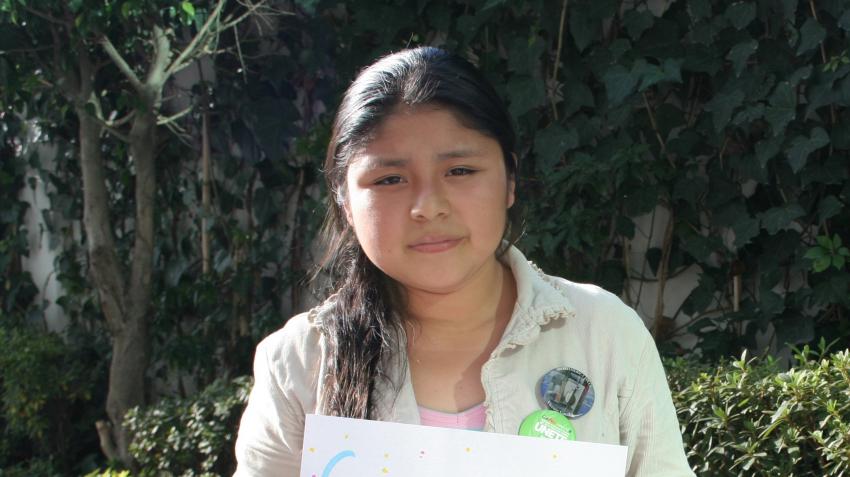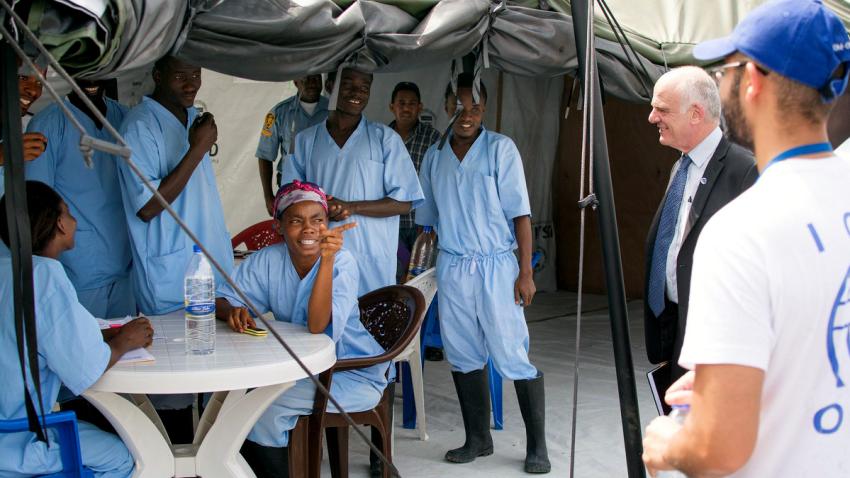María Micaela Jiménez, a youth leader in her indigenous community, participated in the 5th United Nations Regional Conference for Youth in Latin America and the Caribbean in Mexico City organized by UNIC México eight years ago. Today, she is on the front lines of Esperanza Porvenir’s battle against COVID-19. A nursing student and the only person in her indigenous community of 500 people with any health training, Micaela is translating information into Chol, the indigenous community’s mother tongue, explaining COVID-19 prevention measures.
Information sharing in indigenous language
"I inform myself, I see what the health authorities are saying and from there I translate it into our language, which is Chol, so that all people understand me. Until now there is no information in our language in the media,” she said. She explains how the virus is transmitted, what steps to take when someone feels ill, the importance of handwashing and keeping physical distance.
In these unprecedented times, it is vital to hear practical information “so that people can be safe and take care of their health," says Micaela. Hearing that information in your own language is both reassuring and essential to avoiding confusion. And hearing a young person, particularly a young woman, speak with authority sends an unspoken but powerful message all on its own.
So far Esperanza Porvenir has not seen a single case of COVID-19, but people “are afraid that someone from the municipal town of Tumbalá will come and infect us – or when we go to buy basic things, we can get infected. Unfortunately, our community is far away. Here we do not have access to many things such as cleaning products, soap, some things to eat…we have to go to this town to buy them.”
The crisis generated by COVID-19
The people of Esperanza Porvenir have not been able to avoid the pandemic’s economic impact. “Here in the community, almost all the people have to go out to work… Almost all the people are farmers, so they have to go out and sow, or to remove weeds, or to harvest, or to check out the irrigation,” explains Micaela.
With fewer opportunities to sell their products because of the quarantine, the prices of basic goods have increased. Despite residents’ “many gestures of solidarity,” the disease and rising prices have made these difficult times,” Micaela says. But Micaela is hopeful and is proud of her community.
Solidarity keeping hope alive
“Being choleros is a great source of pride… We are sure that we will be able to get through this, taking care of all the people who live here, sharing what we have, teaching children the importance of solidarity, and helping in the work at home and in the community.”
For Micaela, these times are heady ones: the pandemic is doing the schooling now, and she is more confident than ever that her chosen path of nursing is the best one she could have chosen for both herself and for her community.




